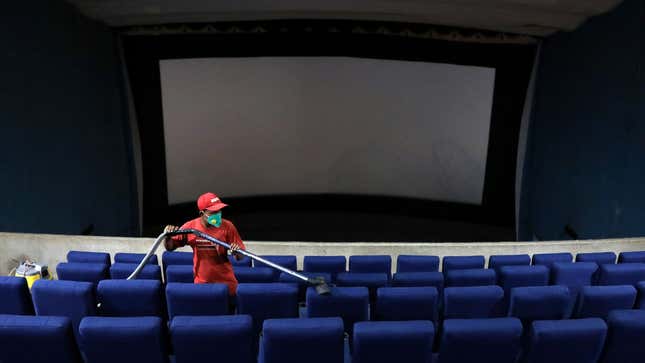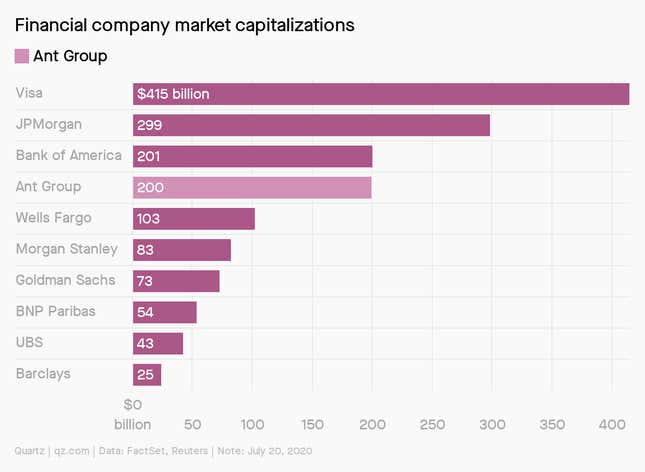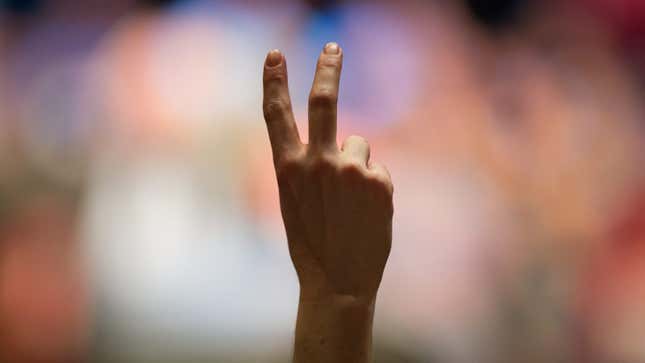Good morning, Quartz readers!
Here’s what you need to know
The UK ended its extradition treaty with Hong Kong. Citing the new Beijing-imposed national security law, British officials also extended a Chinese arms embargo to Hong Kong. Today also marks the one-year anniversary of a mob attack on civilians suspected to have been coordinated with the city’s police force. Protesters are expected to gather to commemorate the date but may be thwarted by pandemic restrictions.
Lawmakers in the US and Europe race to pass economic relief packages. EU negotiators struggled for a fourth day to reach a compromise between nations seeking $860 billion in aid and so-called “frugal” countries looking to cap the package at $445 billion. Meanwhile, American legislators returned to work with just days to pass a new relief bill before key benefits expire.
A vaccine showed early signs of promise. In an initial trial involving 1,077 people, a vaccine developed at Oxford caused patients to develop coronavirus antibodies with manageable side effects. The British government has already ordered 100 million doses well ahead of final approvals.
US officials added 11 Chinese firms to the entity list. The commerce department said the economic sanctions are punishment for the companies’ complicity in China’s human rights abuses in Xinjiang. Beijing is also reportedly mulling sanctions on European telcos Nokia and Ericsson if the EU bans Huawei from its members’ 5G networks.
India asked the US for pharmaceutical concessions. New Delhi wants to eliminate tariffs on a number of drug exports. In exchange, it offered to open Indian markets to US dairy exports—which could bolster US president Donald Trump’s political prospects in key states.
Xiaopeng Motors closed a $500 million funding round. The Alibaba-backed auto company has now raised a total of $2.2 billion to compete in China’s crowded and shrinking electric car market.
Screens of India, large and small

Home to the world’s largest film industry, India’s cinemas have remained shut during coronavirus lockdowns. BookMyShow, the country’s largest platform for movie tickets, has responded by hosting virtual events. In an interview with Quartz, co-founder Parikshit Dar spoke about the unprecedented economic hit, and how he’s hopeful that people will return to the movies.
Some Indians have been filling that missing movie time with the social music-streaming app Resso. When India banned 59 Chinese apps last month, the ByteDance-owned service slipped through the cracks—other platforms including TikTok, Vigo Video, and Helo weren’t so lucky. Overall, the app has been installed 10.6 million times, with about 74% coming from India.
Charting a hefty IPO
Ant Group announced its dual market debut. The Alipay operator said that it will list on the Hong Kong Stock Exchange and on China’s Science and Technology Innovation Board in an IPO that could reportedly lift its valuation to $200 billion (✦ Quartz member exclusive). That would put Ant on par with Bank of America, and make it worth as much as Wells Fargo and Goldman Sachs combined.

✦
For members: Using conflict-resolution principles to build antiracist companies

Search for Common Ground, the international conflict-resolution nonprofit, brings its philosophy of “understand the differences, but act on commonalities” to internal efforts to improve inclusion. Here are some strategies that work:
- Do a deep, detailed conflict analysis
- Consider starting affinity groups
- Find opportunities for experiential learning
- Be “conflict-sensitive”
- Take a non-adversarial approach
✦ Find out more by becoming a Quartz member to access our field guide on creating an antiracist company.
You asked about face shields
Can the use of face shields, without masks, successfully combat Covid-19? —Richard
While masks get most of the attention, over the last few months we’ve visited 3D face shield printers in Kenya, covered Ford’s efforts to manufacture 100,000 shields, and even offered DIY instructions to make your own. But how effective are they, really?
Unfortunately, the jury is still out. However, the CDC is clear that it does not recommend using a face shield as a substitute for a face mask. So the answer to your question, Richard, is no—face shields without masks are not a proven successful way to combat Covid-19.
Running low on masks? We’ve got you covered with a new article that explains how to make cloth face masks at home to World Health Organization specifications.
Surprising discoveries
The S&P 500 only moves after hours. The stock index has gained more than 30% since April—but it has posted all of its gains outside of regular trading hours.
TikTok witches hexed the moon. A renegade band of novice witches have angered the spiritual community through their act of irreverent magic.
Corporate boards are getting skittish about AI. After watching other companies become mired in algorithmic scandal, board members are suddenly very interested in AI ethics.
London’s Beefeaters face layoffs. The iconic bodyguards are on the chopping block for the first time in their 500-year history.
Uncuttable bike locks may be on the way. A new synthetic material inspired by grapefruit peels and abalone shells cannot be cut by angle grinders, drills, or water jets.
Our best wishes for a productive day. Please send any news, comments, lunar blessings, and after-hours stock tips to hi@qz.com. Get the most out of Quartz by downloading our app on iOS and becoming a member. Today’s Daily Brief was brought to you by Nicolás Rivero and Max Lockie.